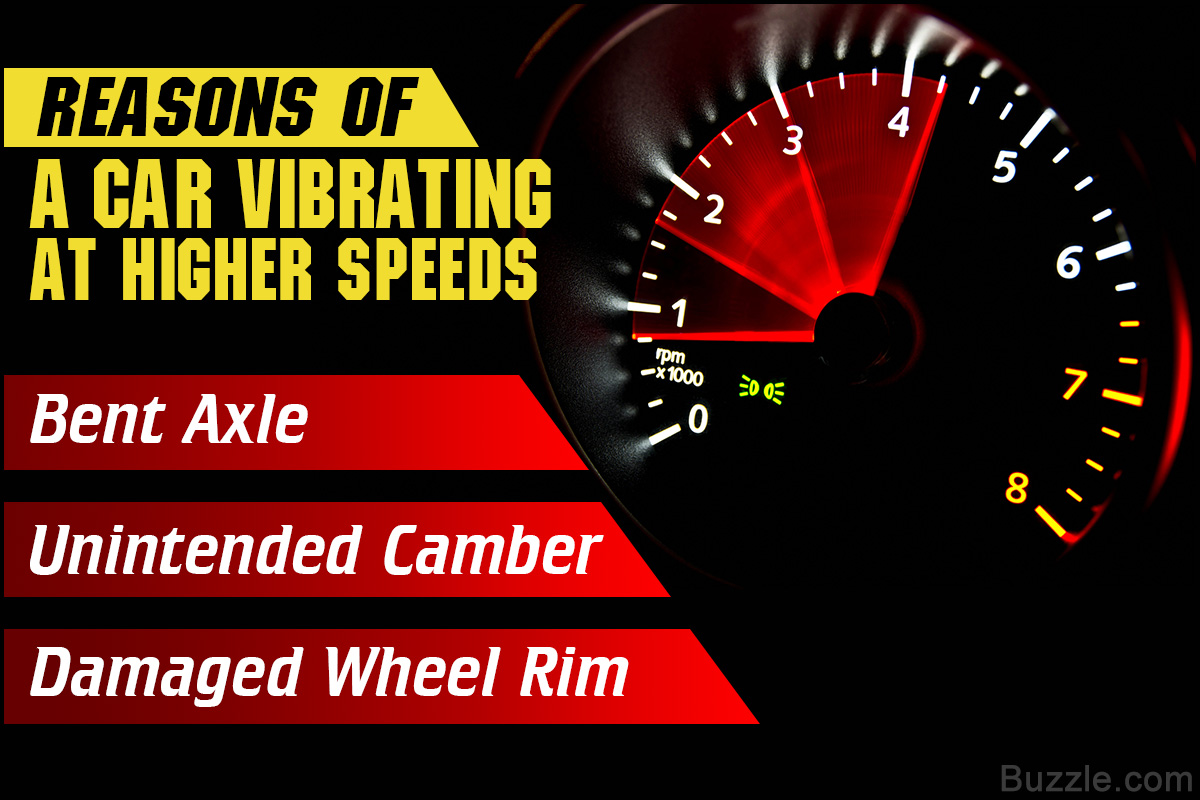
Vibrations in a car going at high speeds is indicative of deeper-lying issues with the car. WheelZine lists some causes of such vibrations in cars.
Don’t Ignore The Tiniest Shimmy
Vibrations in a car can be the precursors of much worse problems such as tire blowouts. If your car is vibrating at high speeds – or worse, at any speed – show it to a trusted mechanic, so that there is no recurrence of any apparent and underlying issues.
Isn’t it annoying when you put your foot down in a righteous fit of adrenaline, and the steering wheel gives your hands a thorough shakedown just when you are trying to take the road by the horn? Such instances are extremely annoying in themselves, but can be indicators of more serious issues.
Vibrations in a car going at a high speed can be caused by numerous issues. Most of these issues are found in the front end of the car. Vibrations in cars are usually experienced in old cars, but they can occur in any car, regardless of whether it is a sprightly new impulse buy or a battered family heirloom.
Here are some of the most common causes of vibrations in a speeding car.
Wheel Camber
Camber is an important factor that affects tire life. A change in the camber can be extremely detrimental to the overall balance of the car, and can cause it to shake. Wheels on a passenger car should be parallel to each other and perpendicular to the ground, unless designed otherwise by the manufacturer itself. If the default configuration is changed, it can affect other components linked to the wheel, such as the axle and the suspension.
Bent Wheel Rim
The rim can be damaged or bent in inconspicuous instances, and you may not realize it until the damage has worsened considerably. A damaged or bent wheel rim can cause imbalance of the wheel while rotating which can lead to horrible consequences if not corrected or replaced in time.
Blistered Tires
Blisters can form on tires that have been subjected to extreme conditions, including heavy-duty off-road driving. Major disfigurements can imbalance the tire, compromising the overall balance and causing vibrations along the steering shaft.
Loose Hubs
The wheel is connected to the axle by the hubs. A loose connection at this crucial junction can cause vibrations at high speeds, and is not to be taken lightly.
More often than not, the problem lies in one of the conditions listed above. Less common but equally risky conditions are:
Bent Axle
If the car is driven only on smooth tarmac roads, the axle usually doesn’t get damaged at all. However, off-road driving or violent accidents can damage the axle, and induce a pronounced wobble at high speeds. A bent axle is linked to the steering through the drive shaft, and can produce significant vibrations.
Worn Motor Mounts
Motor mounts hold the drivetrain and transmission in place, and can get worn over time. They separate the drivetrain and the transmission from the chassis, and prevent the vibrations in the former to disturb the latter. If the mounts are worn, the vibrations are carried over to the chassis, and the unfortunate passenger. Worn motor mounts need to be replaced as soon as possible.
Warped Brake Disk
Disk brakes very rarely get damaged, but if they do, they can cause serious problems and terrible vibrations during braking. The braking in a disk brake system relies on a uniformly smooth disk, and any disfigurement in the latter prevents the brake pads from making full contact with the disk. This reduces braking power, and causes vibrations along the chassis.
Remember, any minor problem on a complex system like a car can balloon into a life-threatening situation if given time. Get your car serviced regularly, and maintain it in perfect condition.






